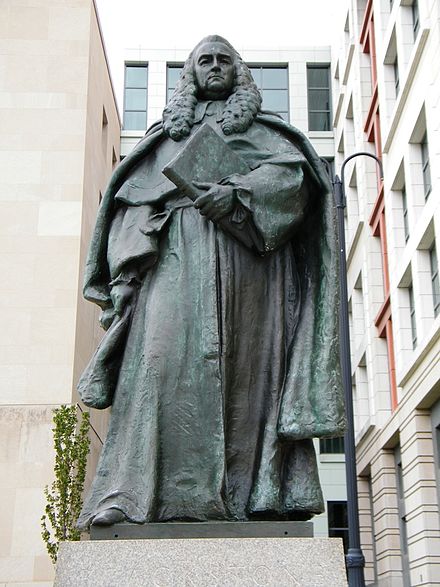Legal systems that have evolved from England have a very high bar for proving guilt. The under-lying philosophy behind this is that it is considered much worse to incarcerate an innocent person than to let a guilty person go free. An English jurist in the 1760s, William Blackstone, summed up the approach in his “Commentaries on the Laws of England” thus;
It is better that ten guilty persons go free than that one innocent suffer.
Or in more detail…
All presumptive evidence of felony should be admitted cautiously, for the law holds that it is better that ten guilty persons escape than that one innocent suffer. And Sir Matthew Hale in particular lays down two rules most prudent and necessary to be observed: 1. Never to convict a man for stealing the goods of a person unknown, merely because he will give no account how he came by them, unless an actual felony be proved of such goods; and, 2. Never to convict any person of murder or manslaughter till at least the body be found dead; on account of two instances he mentions where persons were executed for the murder of others who were then alive but missing.
William Blackstone
This was integrated into English law as a maxim in the 19th century. It is reflected in the fact that the accused must be found guilty beyond reasonable doubt. The above has been interpreted as meaning that the jury must be more than 90% sure that the case of guilt is proven under the presumption that the accused is innocent.
This English view of guilt and innocence is unusual in the world, shared by few nations. Certainly, it has been expressed previously in other enlightened societies, albeit with different ratios, before being tabulated as Blackstone’s ratio in the 18th century. Yet many regimes have a completely different philosophy towards the guilt of the accused. In China, once arrested, your guilt is almost assured, since in 2019 the conviction rate was greater than 99.6%. This either speaks to a very efficient police force that instinctively knows who is guilty and who is not or that there is a low bar for proof of guilt. Famously, in Vietnam in the 1950s the approach was “Better to kill ten innocents than let a guilty person escape.”
There seems to be a natural human tendency to assume guilt, well before a person has been brought to trial. Also, another worrying trend is the concept of guilt or innocence by group membership. That is, if a person is a member of a group, then he or she is assumed guilty because the group to which he or she belongs is axiomatically guilty. Conversely, a person may be innocent because the group to which he or she belongs has suffered group inequity, exonerating the accused of wrongdoing.
Our system of justice deals only with individuals and is bound to apply individual justice, under Blackstone’s maxim and presumption of innocence. Social justice has little to do with that kind of justice and more to do with Marx’s concepts of groups clamouring for power.
P. Henge



